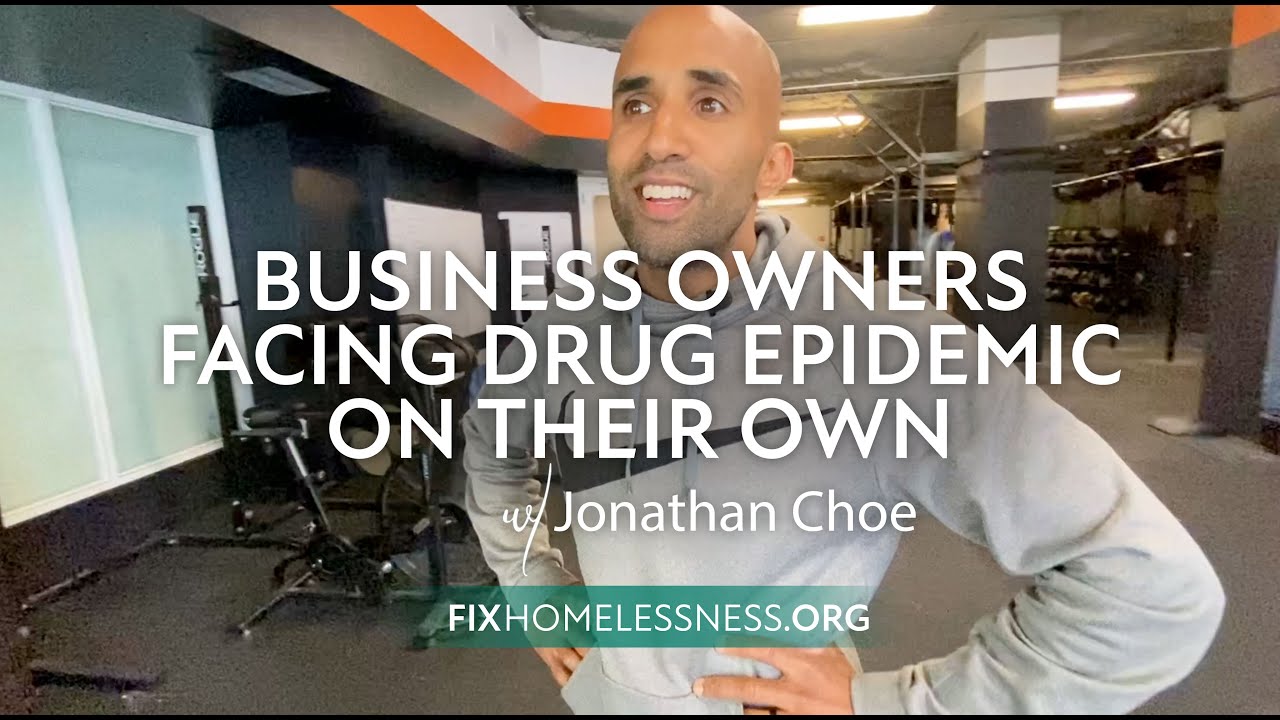Business Owners Facing Drug Epidemic on Their Own
Published at Fix Homelessness
Shooing away drug users in front of his gym is now part of the workout routine of Rohan Joseph, who owns Elliot Bay Community Fitness in Seattle’s Belltown neighborhood. Sometimes they listen. Sometimes it takes some convincing to get them to move them along.
“Every once in a while they do get through the door,” he says.
Joseph laments that almost every day these men and women brazenly use all kinds of illegal substances at the entrance of his gym on the 2200 block of 3rd Avenue. He believes that the multiple social service agencies for the homeless and drug addicts in his neighborhood is leading to drug use on his doorstep: “Every morning, there will be like one or two people passed out that I gotta get moved out of here.”
Adding insult to injury, the drug users leave behind all kinds of trash. Especially the tin foil used to heat heroin and methamphetamine to smoke or inhale.
I asked why he doesn’t call the police. He responds, “The police are handcuffed with what they can do.” As the police department continues to struggle to recruitment and retention, Joseph understands that the department prioritizes more serious calls like murders and violent crimes over drug use.
He says he’s already reached out to Mayor Bruce Harrell’s office and his Councilmember Andrew Lewis, but nothing’s being done. He believes when it comes to the war on drugs, the city is losing.
Ed Peters is struggling with the same issue. Managing the Belltown Grocery, he says the bus stop in front of his store is a favorite destination for addicts: “They just allow them to hang out there, deal drugs there.” In response, he recently installed metal bars on all his windows and doors.
“Response time for the police was I think an hour and a half,” says Peters. He believes the ongoing break-ins and theft in his neighborhood are being fueled by desperate drugs users who sell stolen items to get their next fix.
Of course, the opioid epidemic is taking a human toll. Senator Patty Murray (D-WA) recently chaired a hearing of the Senate Committee on Health, Education, Labor, and Pensions (HELP). She talked about the troubling drug epidemic she’s seeing across the state: “Talk to the fire chief in Seattle, and they respond to four overdoses every day.”
In July, the King County Council declared fentanyl a public health crisis. So far this year, the Department of Public Health says close to 300 people have died from overdoses. That’s a 46% increase over last year.
Dr. Caleb Banta-Green of the University of Washington’s Addictions, Drug & Alcohol Institute, notes that fentanyl has “very, very high risk of both addiction and overdose.” But since it typically comes in pill form, it has an “illusion of aura of safety.”
He explains that “the vast majority of people don’t want to be using. They want to reduce the use, they want to stop the use. But they’re not currently able to access services.”
Joseph, like other business owners in the city, feels abandoned by the city. He says, “they don’t have to deal with it—they’re not the ones living amongst it; they’re not the ones having a business in front of it.”
So for now, Joseph is recording all his encounters and posting them on social media. He hopes Seattle takes a hard look this addiction crisis and wakes up before it’s too late.
Many will agree with his summary of the situation: “It’s wild. It’s wild. It’s not something I should have to deal with.”
